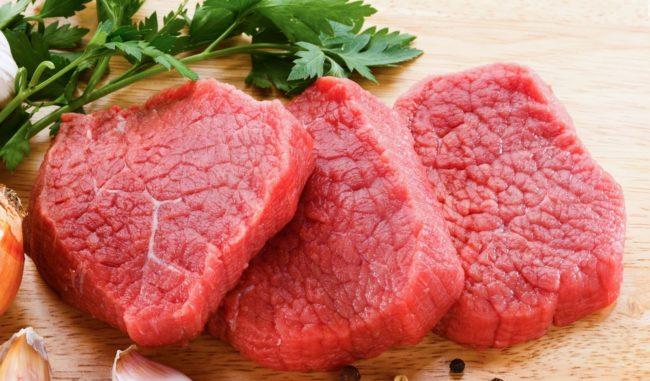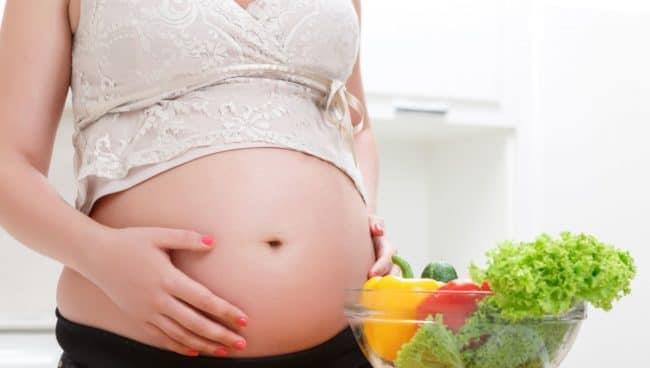Nutrition during pregnancy is very important for mother and baby. So which foods help to supplement iron for pregnant women are recommended to use?
During pregnancy, mothers need twice the amount of iron compared to before pregnancy. This is because your body must use iron to make more blood for your baby. However, about 50% of pregnant women do not get enough of this important mineral.
Eating iron-rich foods and taking extra iron when recommended by your doctor can help control your iron levels. Avoiding iron deficiency can put your baby at risk for difficult-to-treat conditions like anemia.
Benefits of iron during pregnancy

Your body uses iron to make more blood (hemoglobin) for you and your baby during pregnancy. Iron also helps to move oxygen from the lungs to the rest of the mother's body and to the fetus.
Getting enough iron can prevent too few red blood cells that can make pregnant mothers feel tired, known as iron deficiency anemia (according to Mayo Clinic ). In addition, anemia can cause babies to be born too young or premature.
If you were anemic at birth, you are more likely to need a blood transfusion and have other problems if you lose a lot of blood at birth. And some studies show a link between maternal iron deficiency and postpartum depression.
How much iron should pregnant mothers tolerate?
Pregnant women will need at least 27 milligrams (mg) of iron per day during pregnancy.
While you are breast-feeding, take at least 9 mg of iron per day if your age is 19 years or older. For quite young breastfeeding mothers aged 18 or younger, 10mg of iron per day is sufficient. ( 1 )
Too much iron can increase your risk of developing gestational diabetes or oxidative stress, an imbalance in your body that is thought to play a role in infertility, preeclampsia, and miscarriage. Also linked to heart disease and high blood pressure. Take iron supplements during pregnancy as directed by your doctor for best results.
Which foods help to supplement iron for pregnant women effectively?
In addition to taking medications, your doctor also recommends consuming iron-rich foods during pregnancy. ( 2 )
You can find iron in meat, poultry and plant foods as well as in supplements. There are two types of iron, heme iron and non-heme iron:
Foods containing heme iron

Heme iron is found in red meat animals such as beef, turkey, chicken, pork and fish. This iron is absorbed better by your body than the other, so eat plenty of foods high in heme iron.
Lean beef: 3.2 mg;
Beef tenderloin: 3 mg;
Beef liver: 5.2 mg;
Chicken: 1.1 mg;
Black chicken: 1.1 mg;
Chicken liver: 11 mg;
Turkey meat: 1.4 mg;
Sliced pork: 1.2 mg;
Canned tuna: 1.3 mg.
Non-heme iron foods
Non-heme iron is found in plants like vegetables, beans, dried fruits, tofu, whole grains, and iron-rich foods:
Instant oatmeal (iron supplement): 10 mg;
One cup of cereal: 24 mg;
One cup of cooked lentils: 6.6 mg;
Cup of soy milk: 8.8 mg;
Chickenpox cup: 4.8 mg;
One cup of cooked lima beans: 4.5 mg;
Cooked lentils: 5.2 mg;
One cup of cooked black beans: 3.6 mg;
Roasted pumpkin seeds: 4.2 mg;
Half a cup of boiled vegetables: 3.2 mg;
Half cup of tofu: 3.4 mg;
Cup of fruit juice: 3 mg;
One tablespoon of molasses: 3.5 mg;
Ripe grape cup: 0.75 mg;
One slice of white bread or whole wheat bread: 5.7 mg.
Above are the foods that provide iron during pregnancy. However, if the pregnant mother is on a vegetarian diet or a diet, it will be difficult to absorb enough iron. So, be mindful of your eating preferences to keep an eye on your iron intake.
Suggestions to get enough iron during pregnancy

Here are some simple ways to get enough iron in the daily diet of pregnant mothers :
Avoid drinking coffee with meals. Caffeine products containing phenol often interfere with iron absorption;
Eat more foods rich in vitamin C such as oranges, broccoli, and strawberries because vitamin C increases iron absorption up to 6 times;
Cut down on foods like beans, whole grains, soy foods and vegetables because they contain iron inhibitors (substances that prevent iron absorption). However, pregnant mothers can use the above items with iron-fortified foods such as meat, fish and poultry;
Calcium interferes with iron absorption. If you are supplementing calcium, pregnant mothers should use calcium supplements such as crab, ... in the interval between meals;
Supplement beef, water spinach, spinach in the daily diet.
Hopefully, through the above sharing, you have more useful information about iron-rich foods. Thereby, the mother can fully supplement herself as well as the baby in the womb.
You can also learn more about good juices during pregnancy to be both healthy and bright with a rosy glow!














